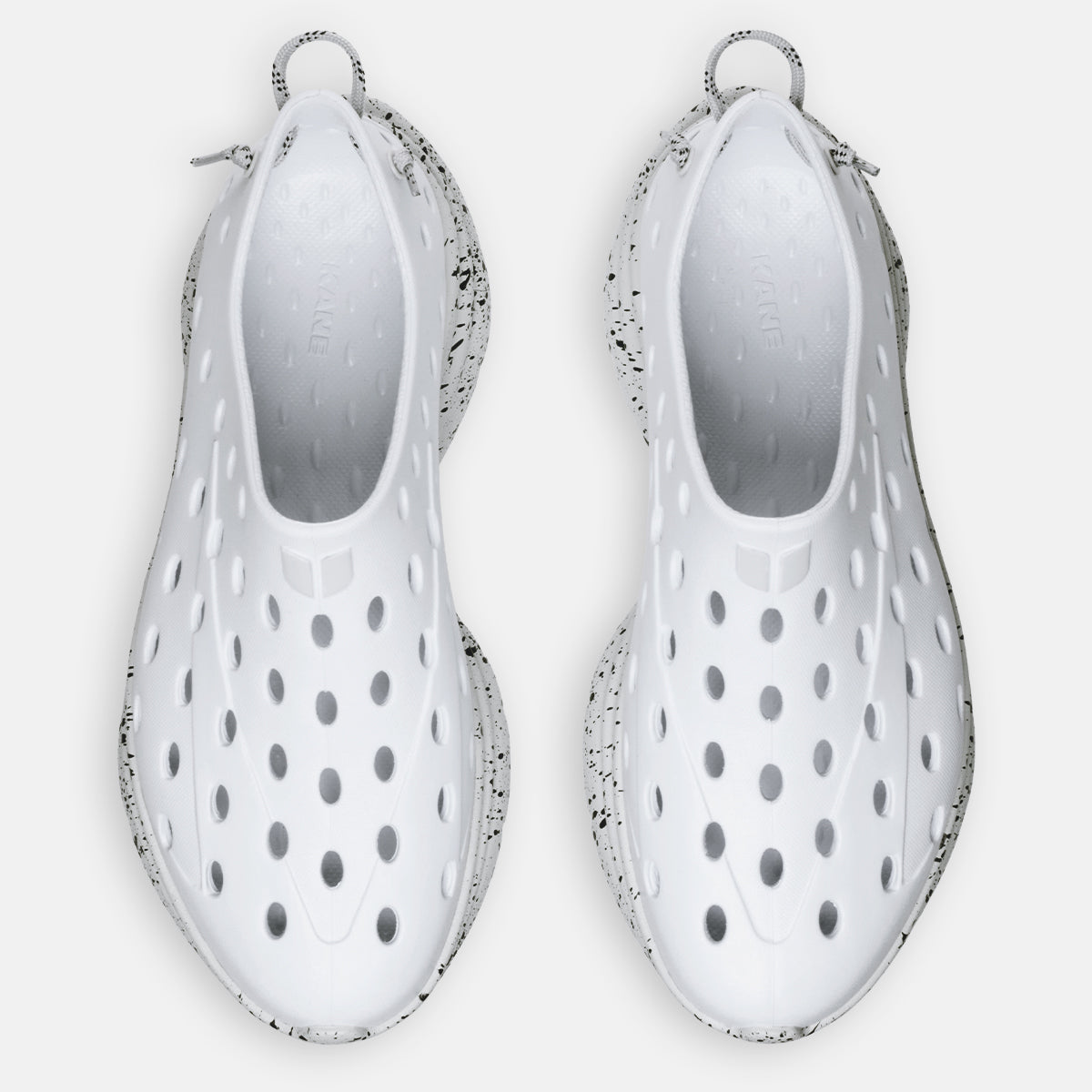Why you feel tired after exercise in the morning: A complete recovery guide
That early morning alarm goes off, you lace up your shoes, and power through a solid morning workout. But instead of feeling energized, you're exhausted and struggling to maintain focus.
You're not alone. Countless fitness enthusiasts experience post-workout fatigue in the morning, from weekend warriors to elite athletes. Post-workout sleepiness isn't about willpower or fitness level. Your body operates on complex biological rhythms where sleep, body temperature, nutrition timing, and recovery all influence how you feel after exercise.
Understanding the science behind exercise-induced fatigue helps you make targeted improvements. Strategic approaches to sleep, nutrition, hydration, and recovery techniques can transform your morning workout experience from draining to energizing.
Key takeaways
- Morning fatigue is natural. Factors including grogginess and circadian rhythms make early morning exercise more challenging and increase post-workout fatigue.
- Preparation prevents exhaustion. Quality sleep patterns, proper nutrition timing, and adequate warm-ups dramatically reduce fatigue after morning workout sessions.
- Recovery goes beyond rest. Foam rolling, strategic post-workout meals, and supportive recovery footwear can help improve the experience.
The science behind exercise fatigue in morning workout sessions
Understanding why you feel tired after morning workouts starts with recognizing how your body functions during the early hours. Several biological processes work differently in the morning, impacting your energy levels.
Your body's morning challenges
Your temperature runs lowest around 4–6 a.m., affecting muscle function and athletic performance during early morning exercise. Sleep inertia (that groggy feeling upon waking) can last hours, impairing cognitive function and motivation. Poor sleep means your body's starting the day operating at a deficit.
Energy and fuel depletion
After fasting overnight, glycogen stores run low, creating challenges for workouts, especially on an empty stomach. Blood sugar also runs lower after eight to 12 hours without food, affecting performance and mental clarity during physical activity.
Two types of morning fatigue
Central and peripheral fatigue work differently, but both contribute to fatigue after morning sessions. Central fatigue involves the brain’s signaling to muscles, while peripheral fatigue originates within the muscle tissue. Studies have shown that sleep deprivation amplifies both types of fatigue, making morning exercise feel more taxing.
What causes fatigue after morning workouts?
Multiple factors contribute to feeling exhausted after morning workouts. Identifying which factors affect you most helps target specific solutions for better energy levels.
Nutritional factors and poor overall nutrition
Nutrition significantly impacts how you feel during and after exercise routine activities. Many people approach morning workouts with depleted energy stores after fasting overnight. Dehydration poses a significant challenge since you lose fluids overnight through breathing and sweating.
Meal timing dramatically influences recovery and sustained energy. Research shows that the timing of meals and nutrients affects immediate recovery and next-day performance. Eating a small meal or snack containing carbohydrates and some protein one to three hours before a morning workout can help boost energy and improve performance, especially if your workout is intense or prolonged.
Your diet composition matters equally. Healthy fats provide building blocks for hormone production, while complex carbohydrates support glycogen replenishment. To prevent fatigue, replace electrolytes lost overnight through fluid loss and sweating.
Training-related issues and workout intensity
Doing too much too often without enough recovery time can lead to overtraining syndrome. Watch for warning signs like constant fatigue, declining performance, and feeling moody or irritable.
Morning workouts also demand smarter intensity choices. Your body's natural rhythms make high-intensity exercise more challenging in the early hours. What feels doable at 3 p.m. might feel brutal at 6 a.m. Skipping a proper warm-up only makes things worse, leaving you more fatigued than necessary.
Sleep and recovery
A study published in Frontiers in Physiology found that being deprived of sleep significantly impairs athletic performance, including endurance, strength, speed, skill control, and increased perceptions of fatigue.
During deep sleep, your body increases blood flow to muscles and releases growth factors essential for muscle tissue repair, making sleep crucial for recovery.
Individual factors that affect morning fatigue
Studies show that natural "night owls" face greater challenges with morning workouts than "early birds." Beginners often experience more severe post-workout fatigue because their bodies haven't adapted to regular physical activity stress. Body weight and baseline fitness levels affect how demanding morning workouts feel.
Why your shoes matter for morning workout recovery
Effective recovery extends beyond nutrition and sleep. It includes supporting your body through every phase of the healing process. The right recovery footwear can support foot and joint comfort after exercise, helping reduce fatigue and making you feel more prepared for your next workout.
Supporting post-workout recovery and muscle growth
After intense workouts, your body activates various muscle recovery mechanisms: blood flow to muscle fibers increases, delivering oxygen and nutrients and helping clear metabolic waste. These processes continue for hours after you finish exercising, supporting tissue repair and adaptation. Recovery footwear complements your body's natural healing process by keeping your feet comfortable and supported during daily activities, allowing you to focus on rest and recovery.
How does footwear impact your recovery experience?
Recovery footwear helps minimize foot and joint discomfort after exercise, supporting neutral alignment and providing cushioning where you need it most. This enhanced comfort makes staying active after morning training sessions easier, so you can go about your daily routine while your body recovers.
Discover Kane Recovery Shoes!
Kane Revive provides excellent support, comfort, and durability for those in need of top-notch recuperative footwear. Featuring an adjustable hook-and-loop single-strap synthetic upper, plush TPR footbed, and durable injected EVA outsole, these kicks come with all the right features to assist you during your rehabilitation journey.
Aside from providing quality products, they're also committed to sustainability. They have become a Certified B Corporation while dedicating 1% of their overall profits to environmental charities.
"The Kane Revive has a proprietary blend of EVA known as RestoreFoam. It's dual-density, which means it's got cushioning and it's got support. It's going to stabilize your foot. It's going to create amazing foot capture with every step you take."
Dr. Daniel Geller, Podiatrist and Foot and Ankle Surgeon
When and how to wear Kane Revive
The best moment to wear most recovery shoes is directly after a tough workout routine or strenuous activity, such as running or exercising. This helps minimize inflammation and launch the healing process. To guarantee maximum comfort and effective recuperation, make sure that you are wearing your footwear correctly by tying up laces securely for a snug fit around your feet.
Evidence-based solutions to prevent post-workout fatigue
Implementing targeted strategies before, during, and after morning workouts can dramatically reduce exercise fatigue, improve energy levels, and help your body recover faster.
Morning workout preparation strategies
Prioritizing good sleep habits is essential for effective morning workouts. Establish a consistent bedtime and wind down with relaxing activities to help you drift off to sleep and wake up refreshed.
Decide whether to work out fasted or after a light breakfast, based on what feels best for your body.
Try dynamic warm-ups and get some natural light exposure to shake off morning grogginess. Both can boost your alertness and performance during early exercise.
During-workout strategies to minimize fatigue
Accept that mornings might not be your peak performance time. If high-intensity workouts consistently leave you drained, save them for later in the day and dedicate morning sessions to low-intensity exercise. Since you're likely starting slightly dehydrated, make drinking water a priority.
Go for dynamic, full-body movements that get your body temperature up quickly. Keep your breathing steady and rhythmic to maintain energy throughout your workout.
Post-workout recovery protocols and adequate rest
After exercise, aim to consume carbohydrates and protein within 30 to 60 minutes to maximize muscle recovery and glycogen replenishment. Be sure to replace fluids and electrolytes lost through intense physical activity (not just water) to fully support hydration and recovery.
Take a few minutes to cool down and consider using a foam roller. Both can help reduce muscle soreness and support a smoother transition into recovery. If you feel fatigued, strategic post-workout naps of 20 to 30 minutes can boost alertness and recovery, without interfering with nighttime sleep.
Creating sustainable energy patterns
Your evening routine is crucial to helping you fall asleep quickly and achieve enough quality sleep. Just like you prioritize your exercise schedule, make your sleep schedule equally non-negotiable.
Keep stress levels manageable and avoid ramping up your training intensity too quickly. Gradual progression helps prevent the kind of persistent fatigue that can derail your fitness goals and leave you feeling drained.
Supporting your healthy lifestyle journey
Understanding the science behind tiredness after exercise in the morning empowers you to make targeted improvements. Sleep quality, temperature, and recovery strategies all influence your energy levels.
Track daily energy levels and sleep to identify patterns. Rather than overhauling everything at once, focus on one or two key changes, such as using a foam roller, a nutritious diet, or sufficient rest.
Building a sustainable exercise routine takes four to six weeks. Start with two to three morning workouts per week, focus on consistency over intensity, and include rest days to help keep you feeling and performing your best.
Frequently asked questions about exercise fatigue
Why am I tired after working out in the morning?
Morning fatigue after exercise is entirely normal. Your body and nervous system need time to fully wake up and reach peak performance, while a lower morning body temperature makes your muscles work less efficiently.
This tiredness usually fades within an hour or two. How quickly you bounce back depends on whether you're naturally a morning person, your fitness level, and how well you slept the night before.
How do you stop post-exercise fatigue?
For immediate relief, try foam rolling, gentle stretching, and prioritize sleep. To prevent fatigue, focus on eating well, getting quality rest, and not overdoing your exercise intensity.
Long-term, stick to consistent sleep schedules, increase your exercise intensity gradually, and build regular rest days into your routine.
How do you feel less tired after morning workouts?
The key is tackling multiple factors at once. Get a good night's rest and fuel your body with a balanced diet with healthy fats for sustained energy.
Don't skip recovery. Proper footwear, foam rolling, and rest days between workouts help you feel more comfortable while you adapt to those early morning sessions.
No content on this site should ever be used as a substitute for direct medical advice from your doctor or other qualified clinicians.





















































